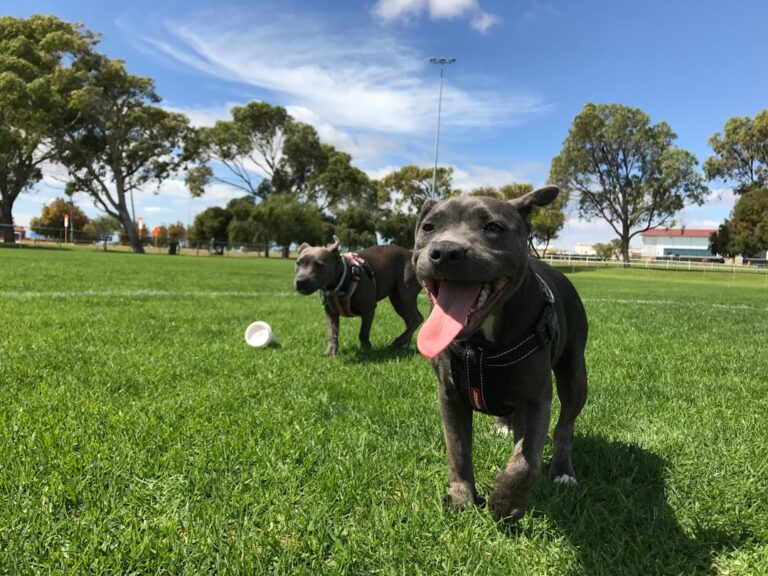The phenomenon of naming dogs has evolved significantly over the years, reflecting broader societal trends and cultural shifts. In recent decades, the popularity of certain dog names has surged, often mirroring the names given to human children. According to various surveys conducted by pet industry experts, names like Bella, Max, and Charlie have consistently topped the charts, indicating a preference for names that are both endearing and easy to call out.
The rise of social media has also played a pivotal role in this trend, as pet owners share their furry companions online, often using popular names that resonate with a wider audience. Interestingly, the popularity of dog names can also be influenced by specific events or trends in society. For instance, during the height of the “Game of Thrones” phenomenon, names like Arya and Khaleesi saw a significant uptick in usage among dog owners.
This correlation between cultural phenomena and naming trends highlights how interconnected our lives are with the media we consume. Furthermore, the rise of dog-centric businesses and social media accounts dedicated to pets has created a community where unique and trendy names can gain traction quickly, leading to a dynamic landscape of dog naming conventions.
Key Takeaways
- Dog names are becoming increasingly popular and diverse, reflecting the unique personalities of their owners.
- The meaning behind dog names can range from traditional and symbolic to modern and trendy.
- There are noticeable gender differences in dog names, with certain names being more commonly associated with male or female dogs.
- Many dog owners are inspired by celebrities when choosing names for their pets, reflecting the influence of popular culture.
- Dog names can also have historical significance, often reflecting cultural and societal trends.
- Regional variations in dog names can be observed, with different areas having their own unique naming conventions.
- When choosing a dog name, it’s important to consider factors such as uniqueness, ease of pronunciation, and personal significance.
- Popular culture, including movies, TV shows, and music, has a significant influence on the names chosen for dogs.
The Meaning Behind the Names
Delving into the meanings behind dog names reveals a rich tapestry of cultural significance and personal sentiment. Many dog owners choose names based on their meanings or associations, often reflecting traits they hope to see in their pets. For example, names like “Nala,” which means successful in Swahili, or “Bodhi,” which signifies enlightenment in Sanskrit, are chosen not just for their sound but for the deeper meanings they carry.
This trend underscores a desire among pet owners to forge a meaningful connection with their dogs, imbuing their names with aspirations or characteristics that resonate with their personalities. Moreover, some names are derived from historical figures or mythological characters, adding layers of significance. For instance, naming a dog “Hercules” might suggest strength and bravery, while “Athena” could imply wisdom and strategy.
These choices often reflect the owner’s values or interests, creating a bond that transcends mere companionship. The act of naming becomes an expression of identity for both the owner and the pet, as they navigate life together under the banner of a name that holds personal meaning.
Gender Differences in Dog Names

When it comes to naming dogs, gender differences play a notable role in the choices made by pet owners. Traditionally, certain names have been categorized as distinctly masculine or feminine, influencing how owners perceive their pets’ identities. For example, names like “Rex” or “Bruno” are often associated with male dogs, evoking images of strength and loyalty.
In contrast, names such as “Luna” or “Daisy” are typically reserved for female dogs, conjuring notions of beauty and gentleness. This binary approach to naming reflects broader societal norms regarding gender roles and expectations. However, recent trends indicate a shift towards more gender-neutral names as pet owners increasingly embrace individuality over traditional norms.
Names like “Scout,” “River,” or “Charlie” are gaining popularity for both male and female dogs alike. This evolution in naming conventions mirrors changing attitudes towards gender identity in society at large, where fluidity and inclusivity are becoming more accepted. As pet owners seek to express their dogs’ unique personalities rather than conforming to traditional gender stereotypes, the landscape of dog naming continues to diversify.
Celebrity-Inspired Dog Names
| Celebrity | Dog Name |
|---|---|
| Elvis Presley | Elvis |
| Marilyn Monroe | Marilyn |
| Oprah Winfrey | Oprah |
| David Bowie | Bowie |
| Taylor Swift | Taylor |
The influence of celebrities on dog naming trends cannot be overstated. As public figures become more prominent in popular culture, their choices often resonate with fans who wish to emulate their lifestyles or values. For instance, when celebrities like Miley Cyrus or Paris Hilton showcase their pets on social media, the names they choose can quickly become fashionable among dog owners.
Names like “Gigi,” inspired by supermodel Gigi Hadid, or “Beyoncé,” after the iconic singer, have seen spikes in popularity as fans seek to connect with their favorite stars through their pets. Moreover, the phenomenon extends beyond just individual celebrities; entire pop culture movements can inspire naming trends. The rise of reality television has introduced a plethora of unique names that reflect the personalities of these public figures.
For example, names like “Khloé” or “Kardashian” have become synonymous with glamour and style, leading many pet owners to adopt these monikers for their furry companions. This trend illustrates how deeply intertwined our lives are with celebrity culture and how it shapes our choices—even in something as personal as naming our pets.
Historical Significance of Dog Names
The historical significance of dog names is a fascinating aspect that often goes overlooked. Throughout history, dogs have held various roles in human society—from loyal companions to working animals—and their names often reflect these roles. In ancient civilizations, dogs were frequently named based on their functions; for instance, hunting dogs might be called “Hunter” or “Chaser,” while herding dogs could be named “Shepherd.” These functional names not only indicated the dog’s purpose but also highlighted the close relationship between humans and their canine counterparts.
Additionally, certain breeds have historically been associated with specific names that reflect their origins or characteristics. For example, the name “Labrador” is derived from the breed’s roots in Newfoundland, where they were originally bred for fishing and retrieving. Similarly, “Dachshund,” which translates to “badger dog” in German, reflects the breed’s historical role in hunting badgers.
Understanding these historical contexts enriches our appreciation for dog names and underscores how they serve as a bridge between past and present.
Regional Variations in Dog Names

Linguistic and Cultural Influences
In some regions, specific names are more common due to linguistic influences or practices. For example, in Spanish-speaking countries, names like “Chico” or “Lola” are popular, carrying specific connotations within those communities. Similarly, in Scandinavian countries, names like “Fjodor” or “Astrid” are favored due to their cultural significance and historical roots.
Regional Dialects and Pronunciation
Regional dialects can also influence how dog names are pronounced or spelled. In parts of the United States where Southern accents prevail, a name like “Duke” might be affectionately pronounced as “Dook,” adding a layer of regional charm to the name.
A Sense of Community and Diversity
This linguistic variation not only reflects local culture but also fosters a sense of community among pet owners who share similar naming conventions. As people move and interact across regions, these variations can blend and evolve, creating a rich tapestry of dog names that reflects the diversity of human experience.
Tips for Choosing a Unique Dog Name
Choosing a unique dog name can be both an exciting and daunting task for new pet owners. One effective strategy is to consider your dog’s personality traits or physical characteristics when brainstorming potential names. For example, if your dog is particularly energetic and playful, you might opt for a name like “Zippy” or “Sparky.” Alternatively, if your dog has distinctive markings or features—such as a patchy coat or striking eyes—names like “Freckles” or “Blue” could be fitting choices that highlight those unique attributes.
Another approach is to draw inspiration from literature, art, or personal interests. If you have a favorite book or movie that resonates with you, consider naming your dog after a character that embodies qualities you admire. For instance, if you’re an avid reader of classic literature, you might choose a name like “Darcy” after Mr.
Darcy from Jane Austen’s “Pride and Prejudice.” This not only gives your dog a unique name but also creates a personal connection that reflects your interests and passions.
The Influence of Popular Culture on Dog Names
Popular culture exerts a profound influence on the naming of dogs, shaping trends that reflect societal interests and values at any given time. Television shows, movies, music, and even viral internet sensations can all inspire pet owners when it comes to choosing names for their furry friends. For instance, characters from beloved animated films often inspire whimsical names; think of how many dogs are named after characters from Disney classics like “Simba” from “The Lion King” or “Elsa” from “Frozen.” These names not only evoke fond memories but also connect pet owners to shared cultural experiences.
Moreover, social media platforms have accelerated this trend by allowing pet owners to showcase their dogs alongside popular culture references. Viral challenges or memes can lead to sudden spikes in specific dog names; for example, during the height of the “Doge” meme phenomenon featuring Shiba Inu dogs with humorous captions written in broken English, many owners began naming their pets “Doge” or “Cheems.” This illustrates how quickly popular culture can permeate everyday life and influence personal choices—like naming our beloved pets—creating an ever-evolving landscape of canine nomenclature that reflects contemporary society’s whims and fancies.










